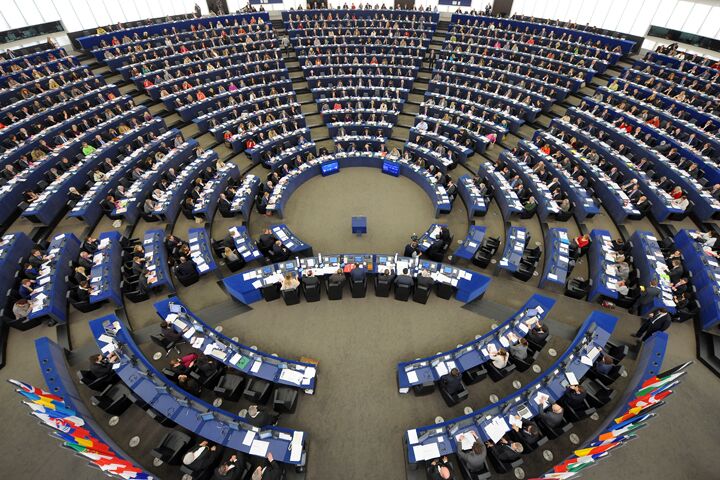
British Historian: Euro Crisis Creating a Federal Europe …
The euro crisis could quickly transform the European Union into a federal Europe, which is exactly what its designers planned, predicted British historian Niall Ferguson in an interview published in the Sunday Times on May 20 with the title “One Nation (Under Germany).”
“I am not a federalist,” said Ferguson. “But the costs of the single currency disintegrating are really so high and would impact so many people, that the only responsible thing for me to do is to argue urgently for the next step to a federal Europe. I see no alternative at the moment that isn’t a great deal worse.”
For the Eurocrats behind the project, this is exactly according to plan. “I think it’s worth considering that the architects of the monetary union knew all along that it would lead to a crisis and the crisis would lead to a federal solution,” he said. “I’m not quite sure how far that was articulated, but I think it was implicit. In fact, you could say it was actually designed to create a crisis.”
According to Ferguson, the thinking in the 1990s was that “monetary union will force us to ever-closer fiscal union, which is hard to sell politically, but we’ll make it happen—we’ll back into it through a monetary union.”
This could happen much quicker than the world expects. “Also, although the German political elite appears slow-moving and plodding, it wasn’t slow-moving and plodding in 1989-90 when the opportunity presented itself to reunite Germany,” he said. “I think you might be surprised by how quickly they move when the chips are down.”
Ferguson said he saw Europe introducing measures such as tax harmonization despite opposition from countries like the Netherlands. “The Irish will squeak, but they have no leverage,” he said.
Another catalyst for this federal union is the widespread dissatisfaction with national politicians, said Ferguson. “The national politics of continental Europe is collapsing, and that’s paving the way toward a federal solution in ways that aren’t fully understood in Britain,” he said.
“The complete descent into disrepute of national political elites helps make the case for federalism,” he said. “The Italians despise their politicians; they have had to bring in [Prime Minister Mario] Monti as a non-politician. The Greeks basically voted against the established parties. All over Europe, national politics has been discredited. Look at the Netherlands, at Belgium.”
Ferguson’s analysis makes a couple of good points that are usually lost in the babble of conflicting analyses of the euro crisis. Firstly, the euro was designed to force this kind of situation to happen. And secondly, though it will be painful, a federal Europe will emerge from the crisis. Several eurozone countries will soon become one union, under Germany.
